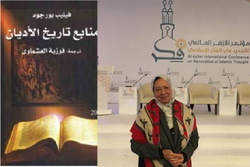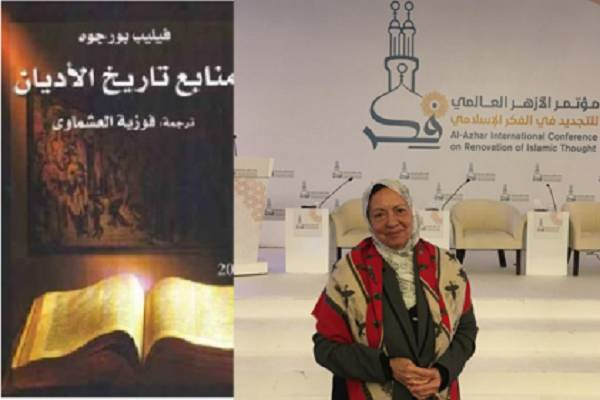Egyptian Scholar’s Efforts to Expound on Women’s Status in Quran


Al-Ashmawi, who died last month, was an Egyptian academic, writer, and translator. She worked as a Professor of Arabic literature and Islamic civilization in the University of Geneva. She also used to be a member of the Supreme Islamic Affair Council, affiliated to Egypt’s Awqaf ministry, and a UNSECO adviser.
She was among academic figures who pursued modernism in religious address and studied the Quran’s religious address, the importance of intellect in interpreting religious address and Quran interpretation, and also the high status of women in Islam and Muslim societies, especially in Egypt.
Fawzia al-Ashmawi was born in Alexandria, Egypt, in early 1940s. She went to a convent school during primary school. She went to Alexandria University where she studied in the Department of French Language in the College of Arts, from which she graduated in 1965.
Al-Ashmawi then headed to Switzerland and continued her studies in social sciences there until she graduated from the College of Arts in University of Geneva. Continuing her studies, she received her MA in 1974, and her PhD in 1983 in Arts, Humanities and Social Sciences. Her MA thesis was about Prophet Mohammed’s (PBUH) personality in French Literature, while her PhD dissertation was Woman and Modern Egypt in the Work of Naguib Mahfuz.
Al-Ashmawi worked as a translator and counsellor in some bodies of the United Nations in Switzerland, and for ISESCO and UNESCO. She also worked as a cultural counsellor in the Embassy of Saudi Arabia, then for that of the United Arab Emirates in Geneva. She got promoted from the position of an assistant professor to become the Head of the Arabic Language and Islamic Studies Department in University of Geneva.
The renowned scholar died in Geneva last month at the age of 80.
Her main work was “Woman in Quranic Address”. In this book, she notes that while in Mecca, the Holy Prophet (PBUH) faced the extensive opposition of the disbelievers. In this period, the Quranic address was introducing monotheism to people and inviting them to Islam. In this era, woman did not play a major role in society and in Makki Surahs, woman was overshadowed by man. In these Surahs, only some women as wives of prophets or wife of pharaoh are mentioned.
But after the Holy Prophet (PBUH) moved to Medina, we see a different society there that has cultural plurality. Here the verses of the Quran put women beside men. In Madani Surahs, Muminat (men believers) and Muslimat (Muslim women) are mentioned beside Muminin (men believers) and Muslimin (Muslim men).


